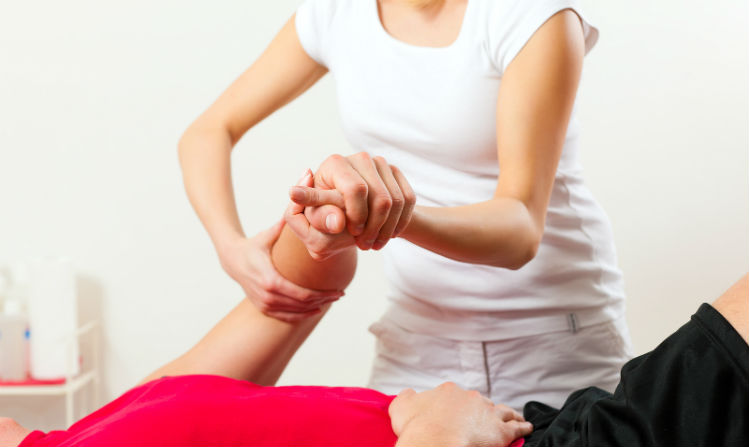At SB Sports and Pain Clinics we provide sports therapy, sports rehab and sports massage. All our staff are trained to degree level. They are experienced in diagnosing and selecting the right treatment for you. Sports therapy and sports rehabilitation are relatively new professions compared with more traditional therapies, such as physiotherapy and osteopathy. It is difficult to decide which professional is best for you, and here we hope to explain some of the differences.
How do you decide which professional is best for you?
There is a certainly an overlap between sports therapy, sports rehab and sports massage. However, training routes, qualification levels and regulation vary across these professions. Graduate sports therapy and sports rehabilitation are degree level qualifications They require the same duration of training and knowledge level as a physiotherapist. Sports therapy and sports massage therapy practitioners may only be trained to diploma level, and therefore will not have undertaken as many hours in training.
How important is the level of qualification?
At the time of qualification, the graduate level qualifications will have invested more time and financial resources. They will have had more supervised hours as a student, and have demonstrated a high level of knowledge and clinical reasoning. But even a new graduate will not know everything. They do most of their learning once they have started working in clinics or supporting sports teams. They expand their knowledge with reading and attending conferences and training days.
Diploma courses must also meet required standards for each level. The higher the level the greater the knowledge and time invested.
What about experience?
This is essential to become a good therapist. Sports therapy and sports rehabilitation degree courses often provide experience outside of the university environment. This gives the student a chance to see how other professionals work. They learn how to use their practical skills and knowledge with real injuries and problems. Whatever the level, all students must complete a minimum number of practice hours before they are passed as competent and allowed to practice unsupervised.
The best therapists will have many hours of experience, and will have worked alongside other health and therapy professionals. Don’t be afraid of the those who cannot give you a solution to your problem, those professionals know their limitations. It doesn’t mean that you will never get better. You may need to seek help from a different practitioner who has more experience with your specific issues.
What should you look for when you need help?
There are many factors that determine who is best for you. In no particular order some useful ones are:
- Personal recommendation – this is probably the best place to start, however just because it worked for your friend it may not be right for you.
- Experience in their current role – not just years since qualification, but how many hours they have worked.
- Experience of working alongside other professionals – this reduces the possibility of the therapist having poor skills or out of date knowledge.
- Qualification – it should be the correct level for your needs, not all professions are allowed to make a diagnosis.
- Regulatory body and professional insurance – always ensure that you see a current member of a regulatory body as they are required to be insured and work to a specific code of practice.
- Be open-minded – there are some amazing therapists out there with a variety of qualifications and experience, you don’t just need to see an NHS physiotherapist anymore.
- Price – a good therapist may charge more, however if your problem is solved within 2 or 3 visits, it will be cheaper in the long run than having repeat sports massages for a problem that never quite goes away.
- Premises and facilities – many injuries, aches and pains are improved with movement and exercise, therefore a clinic with space and equipment will be more suitable than a small room with just a treatment couch.
What can we offer at SB Sports and Pain Clinics?
Our staff have degree level qualifications and work alongside each other and other health professionals. Sarah is registered with the GMC and still has a licence to practice as a doctor, as well as being a member of the Society of Sports Therapists, British Association of Sports Rehabilitators and Trainers (BASRaT) and the British Medical Acupuncture Society.
We have invested heavily in our service over the five years since we started, and our prices reflect this financial commitment we have made. Our aim is to ensure you make as full a recovery as possible, and we have selected premises and equipment that allows us to do so.






